FX News
June 2024
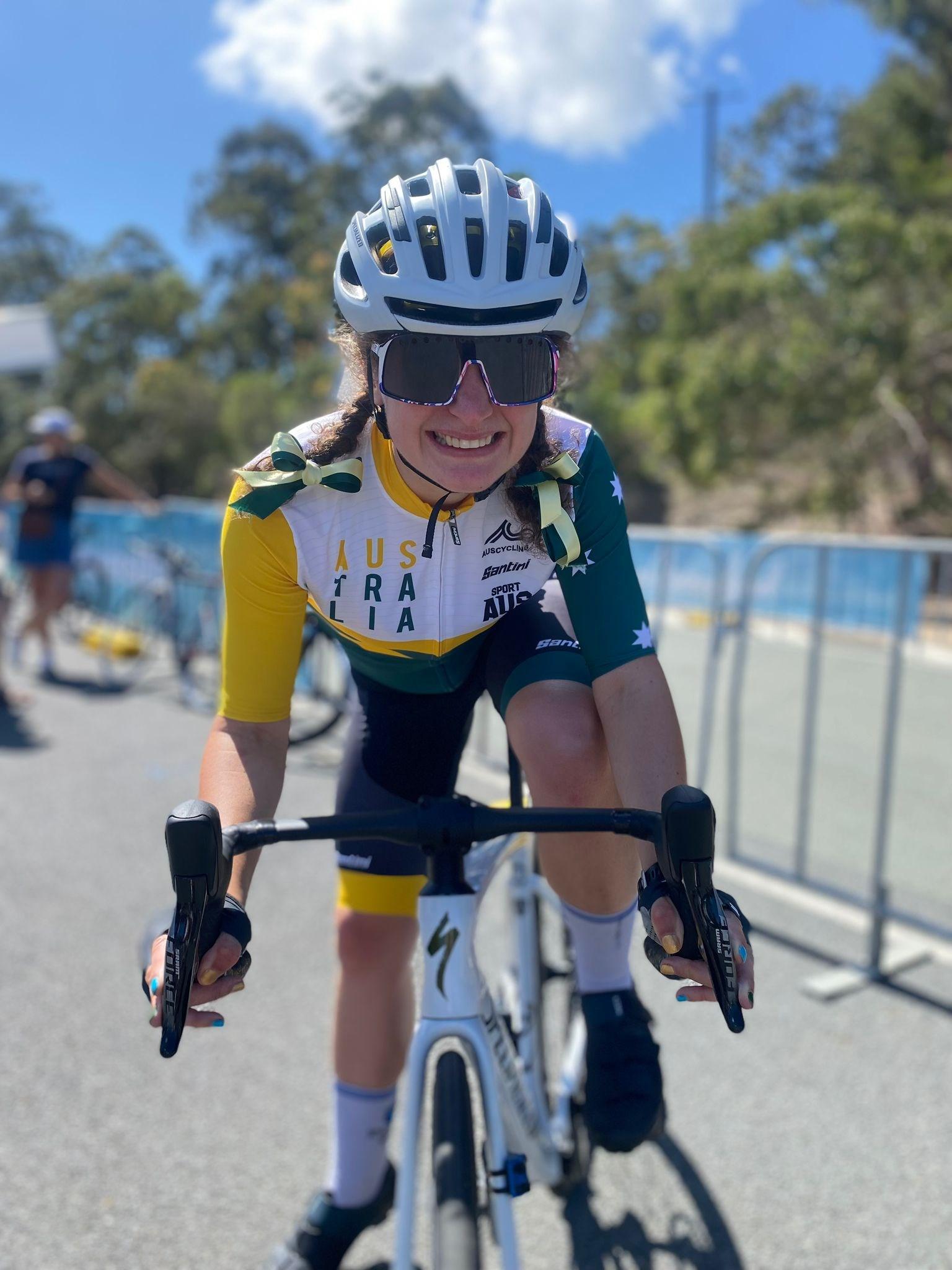

A warm helloto our wonderful members & friends of FXAA,
As President of the Fragile X Association of Australia (FXAA), and mother of 29-year-old Daniel who lives with Fragile X syndrome, I want to share a quick update with you.
We’re just a few weeks out from the End of Financial Year and as June 30 approaches, I invite you to consider making a donation to FXAA.
As a registered charity, our work is funded entirely by donations, fundraising and grants – we receive no government funding. I appreciate that financial pressures are considerable for families at the current time however, if you’re able to provide support, your generosity will help FXAA ensure people living with Fragile X are connected, included, understood and empowered. Specifically, your donation (no matter how big or small) will help us maintain and deliver our:
•Counselling support service
•FXAA Helpline - available 5 days per week
•Educational webinar program – our next few webinars will focus on planning for the future for family members, and on Fragile X premutation health matters.
•Advocacy work – for example: our new study on adults and ageing in Fragile X syndrome, our work in raising awareness of the Fragile X premutation, our contribution to the government’s draft autism strategy, a response to proposed changes to the NDIS, and greater focus by government on neurological conditions, eg FXTAS
• Peer connection and referrals - as a parent and as a member of FXAA for close to three decades myself, I know how valuable the support and connections FXAA offers can be.
HOW TO DONATE
Donations can be made by:
* our website donate page fragilex.org.au
* scanning the QR code below
* direct deposit (contact us at support@fragilex.org.au)
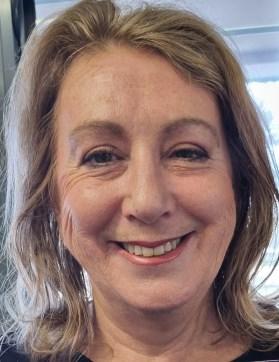
Donations of $2.00 and over are tax-deductible.
I commend our latest newsletter to you for an update on our work in supporting and empowering the Fragile X community.
An example is our work on Fragile X Care | Adults & Ageing. This is the very first Australian study to bring focus to the health, support and wellbeing needs of adults with Fragile X syndrome as they age. We’re working on this in collaboration with the Centre for Disability Studies. This important 3-year project is funded by a grant from the Henroth Group, for which the Board and I are deeply thankful.
You’ll also enjoy several inspiring family stories, meet Montana Whiteley, see what’s coming up on our webinar program, read some research news, and read about a book I’ve recently enjoyed an informative book about the Fragile X Premutation and Fragile X syndrome, called “The Carriers”.
Kind regards,
Cynthia Roberts PhD President, FXAA


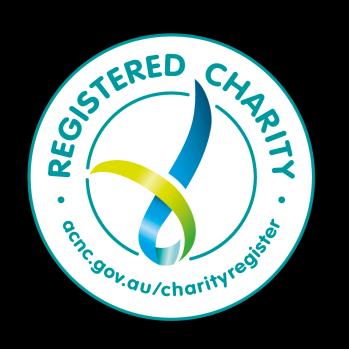
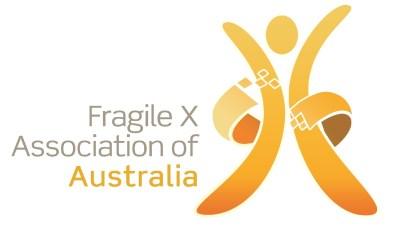
2
Australia
are
by
conditions, including
and the
Associated Conditions.
Fragile
X
Association of
Australia is a registered charity providing support and information to people around
who
affected
Fragile X-Associated
Fragile X syndrome
Fragile X Premutation
Fragile X Association of Australia Inc Registered office: Suite 204 20 Dale Street, Brookvale NSW 2100 ABN: 18 655 264 477 ARBN: 626 478 966 MESSAGE FROM THE PRESIDENT
Donate to FXAA
MEET MONTANA
Meet Montana Whiteley, a remarkable 25-year-old with Fragile X Syndrome. Montana is not only a cycling National champion and international road race champion but also a triathlete and marathon runner. She defines dedication and passion in everything she does, and her achievements go beyond sports.
Montana's journey with Fragile X began when she was diagnosed at the age of three. Growing up alongside her older brother Jamieson, who also has the condition, Montana received early intervention at Biala and attended a specialized prep program at Burwood East Primary School in Melbourne. As her educational pathway progressed, she later joined Ashwood School, where she formed lifelong friendships and discovered her love for sports under the guidance of a dedicated fitness coach. Montana went on to complete a tertiary course at Victoria University focused on health and fitness.
Although initially not interested in sports, Montana's life took a turn when she participated in her first triathlon in 2014 with the support of her younger sister Bronte. Since then, she has made sport an integral part of her daily routine. Over the years, Montana has accomplished incredible feats, such as competing in the 2XU triathlon series and even conquering the Olympic distance triathlon – comprising a 1.5km swim, 40km bike ride, and 10km run. Gone are the days of borrowing equipment; Montana now confidently manages her own gear transitions during races.
Montana's commitment to training and fitness has brought her success both locally and internationally. Highlights include participating in the Virtus Global Games in Brisbane (2018) and Oceania Games (2022), securing medals in road cycling and triathlon. At national cycling championships in Ballarat, she proudly claimed two national titles – one for the 16km time trial and another for the 40km road race. Internationally, Montana completed a
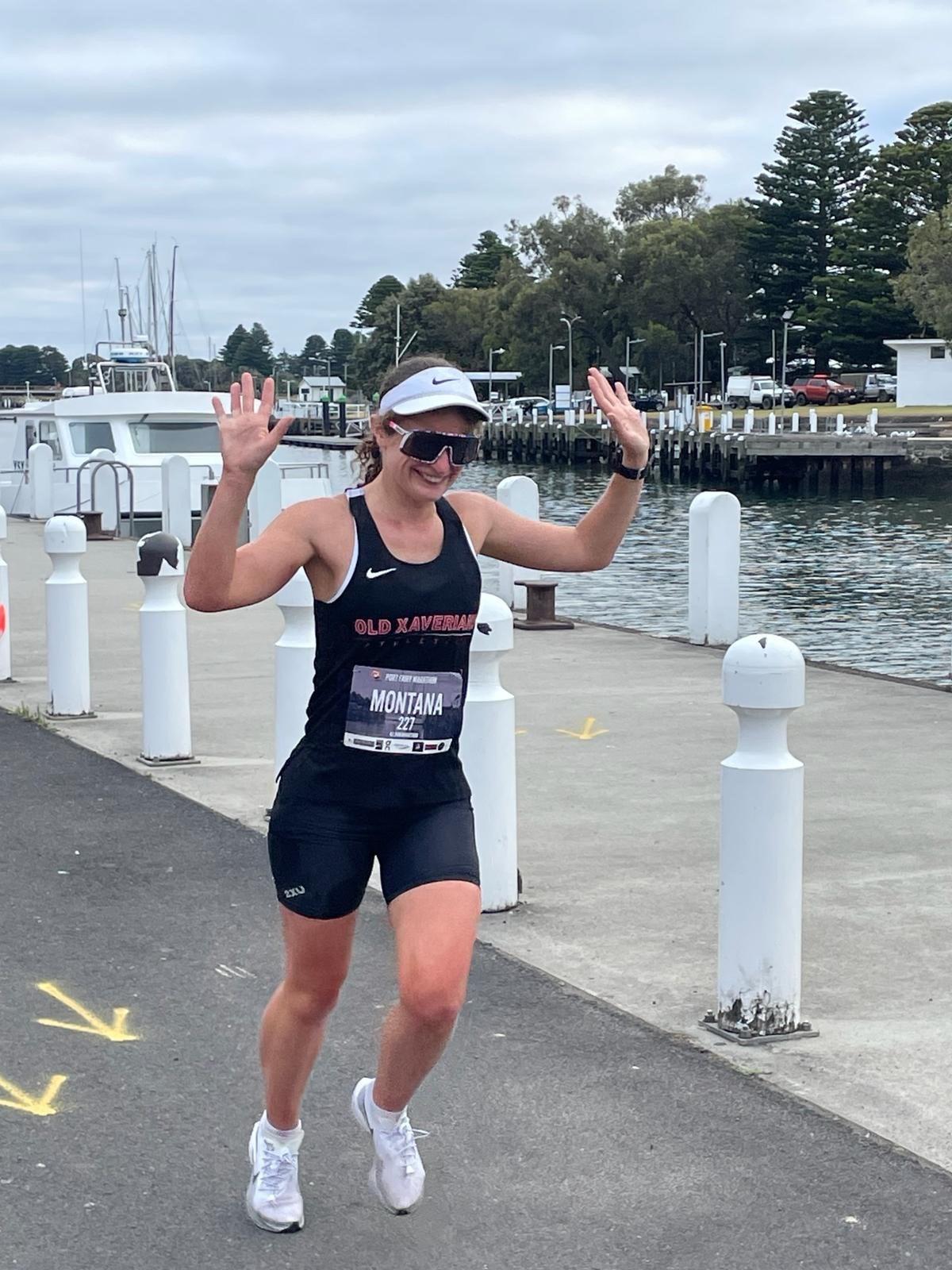
and silver medals.
Montana's sporting accomplishments are not by chance; she perseveres through daily training sessions encompassing cycling, running, gym workouts, and swimming. Together with her dad Dean, she meticulously plans her weekly fitness schedule to align with upcoming events. Montana also maintains a healthy diet focused on vegetables, fruits, salads - steering clear of hot chips!
In addition to her athletic pursuits, Montana recently embarked on a special needs cooking and food services program. She aspires to utilize these skills to secure employment in a coffee shop or any setting where she can interact with people, showcasing her bubbly personality and desire to learn. Despite being aware of her disability, Montana gives nothing less than her best effort to improve her abilities continuously.
If you were to ask Montana about her proudest achievement, it would be completing her first (43km) marathon earlier this year in under four hours a testament to her strong willpower and determination.
Montana is an extraordinary individual navigating life's challenges just like any other 26-year-old. Her infectious personality resonates positivity everywhere she goes. Her strongest assets according to her Mum Penny are her resilient mindset and positive attitude that make her an exceptionally wonderful person to be around.
Montana Whiteley exemplifies what it means to defy expectations and pursue dreams with unyielding passion – an inspiration for all those facing adversity.
Australia in cycling at Vichy, France (2023), earning gold
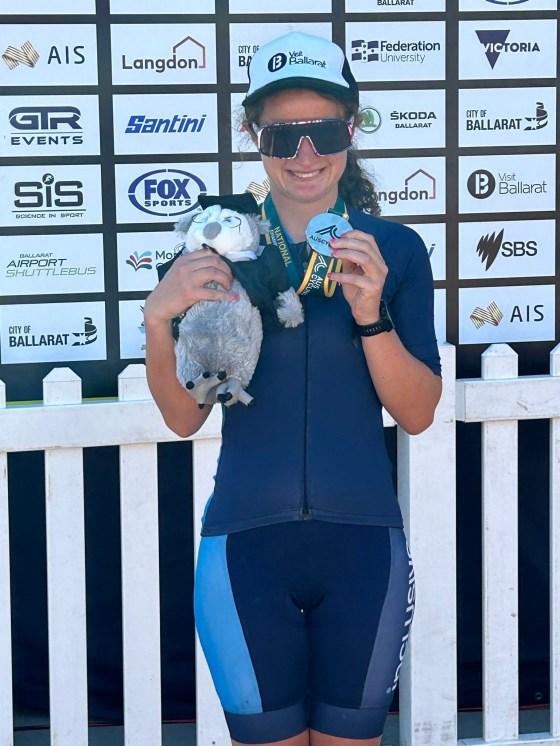
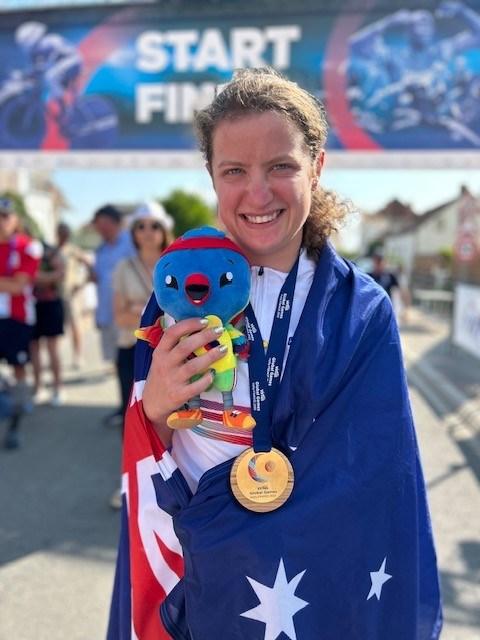

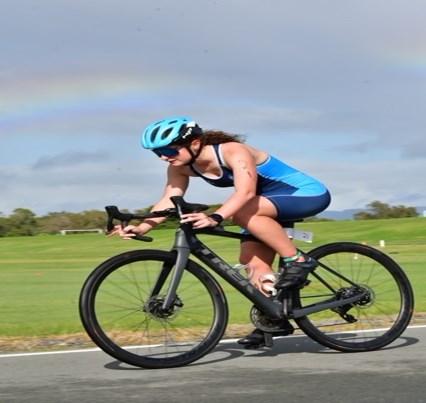
3
As we age, many of us worry about our health, staying connected with loved ones, and finding the support we need to live fulfilling lives. For adults living with Fragile X syndrome these challenges can be even more daunting.
As an adult living with Fragile X syndrome, ageing presents unique hurdles requiring specialised understanding and care, but a ground-breaking, Australian-first study is underway that aims to change this for the better.
Cynthia Roberts is the proud mother of Daniel, a 29 yearold man with Fragile X syndrome and the current President of the Fragile X Association of Australia (FXAA).
Cynthia and Daniel’s father are divorced and both remarried with both couples sharing Daniel’s care. They are increasingly focused on how best to support him as they grow older and face new and different challenges.
"Daniel was diagnosed with Fragile X syndrome at 18 months. He is seriously affected, with moderate intellectual disability, epilepsy and significant anxiety and behavioural issues. He needs care in all aspects of his life, including personal care, medication, medical and therapy support, home care and out in the community,” Cynthia said.
“Although his receptive language is very good, Daniel is effectively non-verbal and uses very little language for communication. This makes understanding Daniel’s feelings, concerns and health issues extremely challenging.
Without doubt, I understand Dan the best and have good intuition about what he needs. However, I am not the only person in Dan’s life, nor am I with him all the time, to provide that interpretation so we need to continue to upskill Dan to increase his abilities to express himself.
“Fragile X syndrome isn’t particularly well understood and even in professional and support services, staff may never have encountered an affected individual. This creates additional challenges for providing care, especially given individuals will have their own unique challenges. Understanding this and how this is supported is key to appropriate and compassionate care.
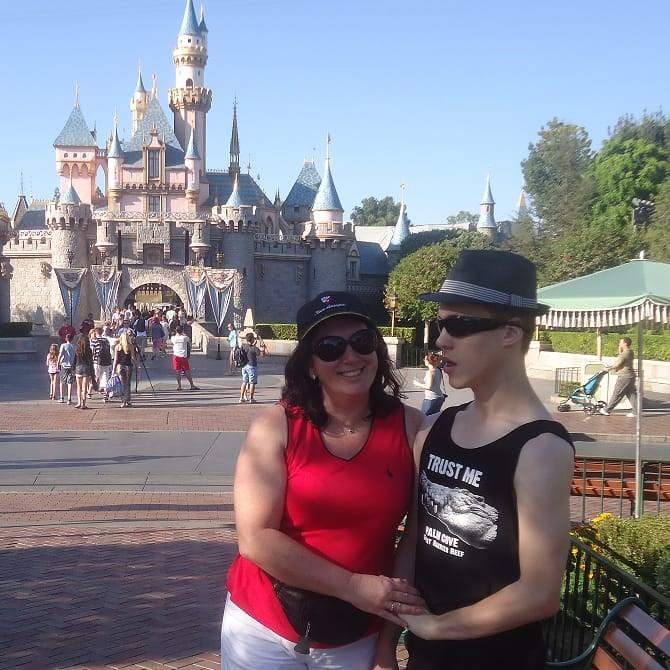
“As Daniel ages, I worry about his health and the support he’ll receive when ’re no longer able to care for him. Equally, I want him to have the very best care and outcomes possible right now. m committed to doing everything possible to make sure he can live his best possible life," Cynthia said.
This sentiment echoes across many families caring for adults with Fragile X syndrome.
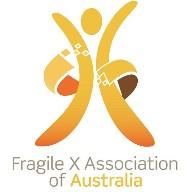
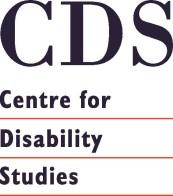
Recognising these concerns and some of the gaps in support services, FXAA has partnered with the Centre for Disability Studies, affiliate of the University of Sydney, to undertake a first-of-its-kind Australian research study on adults with Fragile X and ageing – Fragile X Care
The three-year collaboration, funded by a philanthropic grant from the Henroth Group, will help identify the unique support, health and wellbeing needs of adults with Fragile X syndrome as they age.
Wendy Bruce, Executive Director of FXAA, believes this collaborative effort will drive significant positive change.
“This is a really unique collaboration. We’re focused on three important areas, that collectively, will make a huge amount of difference for adults with Fragile X syndrome,” Wendy said.
“Firstly, we’re conducting extensive research that is deeply informed by lived experience. We’re very invested in making sure the voices of the adults with Fragile X syndrome are heard and that family members and carers have the opportunity to really share their perspective of what’s needed to improve supports for their loved ones.
“We’ll use this data to analyse both the current and future needs of adults with Fragile X syndrome so we can advocate to address the gaps in support and services. Our goal is to make sure that no aspect of care is overlooked,” Wendy said.
In response to the findings from the survey and focus group discussions, effective education and training resources will be developed to better support disability, aged care, and health teams in their understanding of Fragile X syndrome. These resources are much needed and will empower professionals with the knowledge and skills to better support those with Fragile X syndrome.
Thirdly, the collaboration will enable more powerful advocacy. The data-driven approach will help FXAA advocate for better outcomes by raising awareness and influencing policy and practice.
Wendy explains that advocacy is crucial for driving meaningful change in care and support settings, ensuring that adults with Fragile X syndrome receive the attention and care they deserve.
“At FXAA, advocacy is a critical component of our mission which is to support people living with FX to live their best possible lives through connection, education and advocacy,” Wendy said.
“The collaboration with Centre for Disability Studies, and the outcomes it will help us achieve, mean we can be a stronger voice for the Fragile X community. We can better influence public policy, and practical outcomes.
Effecting public policy change and influencing improvements in supports now and into the future is the ultimate goal of Fragile X Care,” Wendy said.
If you or someone you know would like to get involved, there are three ways to participate in the Family Survey - ONLINE, PAPER format, or via a PHONE CALL toFXAA or the research team. See: next page or www.fragilex.org.au
4
AGEING WITH FRAGILE X SYNDROME: A JOURNEY OF HOPE AND ADVOCACY
NEW AUSTRALIAN RESEARCH STUDY

Invitation | Australian Research Study on Adults and Ageing with Fragile X syndrome
We are inviting all FXAA members to take part in a new research study about adults who are living with Fragile X syndrome. The study is called Fragile X Care | Adults and Ageing. FXAA is working on this project together with the Centre for Disability Studies (CDS) - a research affiliate of University of Sydney.
What is this study about?
This is the first ever study of adults in Australia who are living with Fragile X syndrome. It aims to find out what types of support are in place for adults living with Fragile X syndrome, and what supports are needed into the future.
What we learn from this study will be used in a variety of ways, but with the ultimate goal of enhancing the quality of life for adults with Fragile X syndrome. The findings will provide the first-ever contemporary picture of the current and future needs of adults with Fragile X syndrome in Australia, to help inform and build capability, policy, practice and advocacy across relevant support areas and care settings.
Who can participate in the Fragile X Care study?
Anyone (aged 18 or over) who has an adult family member living with Fragile X syndrome can take part. Service providers can take part people whose work involves providing disability, aged care or health supports to adults with Fragile X syndrome, including disability support workers, therapists, aged care staff and health professionals.
How can Family Members/Carers participate?
Family members of an adult with Fragile X syndrome can complete the Fragile X Care Family Survey.
Questions will touch on things like what supports the adult/adults in your family living with Fragile X syndrome currently have, other supports they need, their health and wellbeing, challenges with daily living, and plans for their support in the future. The survey will also ask some questions about you and your family. At the end you’ll be asked if you would like to be involved in further discussion in a focus group.
If you choose to participate in the study you can complete the survey in one of several ways:
ONLINE from a link on the FXAA website or QR code
PAPER COPY contact us to request a copy
PHONE CALL with FXAA or research team member
To request a paper copy or to arrange a phone call, contact us: support@fragilex.org.au or 1300 394 636
How can Support Providers participate?
The Support Provider survey can be completed online from a link on the FXAA website or via QR code.


How is the research study funded?
The project is supported by a philanthropic grant awarded to FXAA.
To learn more about the study visit our website: www.fragilex.org.au or call us: 1300 394 636
This research project has been approved by the Human Research Ethics Committee of University of Sydney.
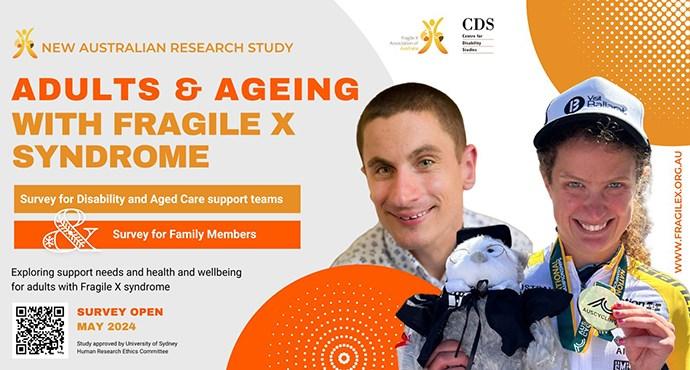
5
FAMILY SURVEY SUPPORT TEAM SURVEY
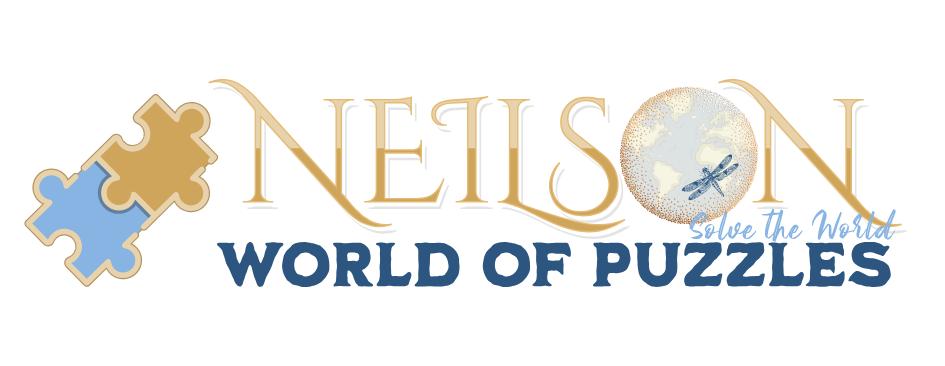
Amanda Neilson has been a professional portrait and travel photographer for more than a dozen years. She lives and
“First and foremost I am the mother of four Jonah, Eli, Jemima and Isaac, Isaac being my only non FX child. It's been a bit of a crazy ride at times not without challenges and pain but I am very proud of my family and all we have achieved. Sadly we lost Eli at a very young age. That was extremely tough but Jonah was my reason to get out of bed each morning in those early days and he is still my champion and my sunshine every day.
Jemima has also faced a lot, brain cancer at age 5 and kidney cancer at 14. She is brave and strong and resilient and incredibly stubborn (perhaps some of you may relate). Isaac is the best little brother who has had to step up in so many inconceivable ways. He is reliable, selfless and caring. They all make me so very proud.
I'm sure it comes as no surprise to you that my kids love puzzles, and they're very good at them. So when a friend of mine who owns an Australian jigsaw factory called QPuzzles asked if I'd design a range of puzzles for him, I knew exactly what I wanted to create. After all, I'd spent a lot of time around puzzles in the last 20 years!
So I designed exactly what I'd buy. Beautiful images, choc full of intricate details, built in story telling and educational opportunities to learn about geography, botany, history, language and world icons all done visually.



Jonah and Jemima do not read and write, however they are a wealth of information on the world and its wonders.
I wanted to encourage that for all children and adults. I wanted the puzzles to be an opportunity for conversation while building, an opportunity for discovery as well as magical belief.
That is why on the back of every box you will find a little story about the fairy, their native animal friend, their home and the inspirational person she or he is named for.
The puzzles have been launched with QPuzzles and are available for shipping world wide.
They are called Neilson World of Fairies and to let you in on a little secret I have already started working on Neilson World of Monsters (as requested by Jonah). My next job is spreading the word. I plan on embarking on a roadtrip very soon to talk to as many toy and book shops as I can about stocking them.
Please find and follow me on facebook at Neilson World or instagram at neilson.world
I'd really love to know what you all think. “ Amanda
https://qpuzzles.com.au/



CHLOE AND TOM | A STORY ABOUT SIBLINGS
Hi Everyone,
My name is Melissa Mikkelsen. I am a mum of two adult Children – Chloe who is 24 and a paediatric physio in Brisbane and Tom who is 21 and has Fragile X syndrome. When Chloe and Tom were much younger, I wished there was a joyful, positive, inclusive colourful picture book about siblings and Fragile X syndrome.
I'm excited to share something very close to my heart with you all - my new book, "Chloe and Tom: A Story about Siblings and Fragile X."
This book is inspired by our own family's journey with Fragile X syndrome, particularly the adventures and bond shared between Chloe and our special Tom.
This book is all about celebrating the special connection between siblings. It's born from our own experiences. Through Chloe and Tom's story, I wanted to highlight how siblings can be each other's biggest supporters.
The story of "Chloe and Tom" brings to life the simple, beautiful moments between siblings. The story showcases the love and understanding that grows in families like ours. It also introduces Fragile X syndrome in a gentle, understandable way, focusing on the strengths and abilities that come with Fragile X.
The idea for this book came from a place of love and a bit of frustration. There aren't enough stories out there that show what it's like to live with Fragile X or to have a sibling who sees the world a little differently. I wanted to create a bright, joyful book that talks about inclusion and the special bond between siblings. It is the book I wish I was available when Chloe and Tom were younger.
"Chloe and Tom" much more than just a book; it's a piece of our life, shared with you.
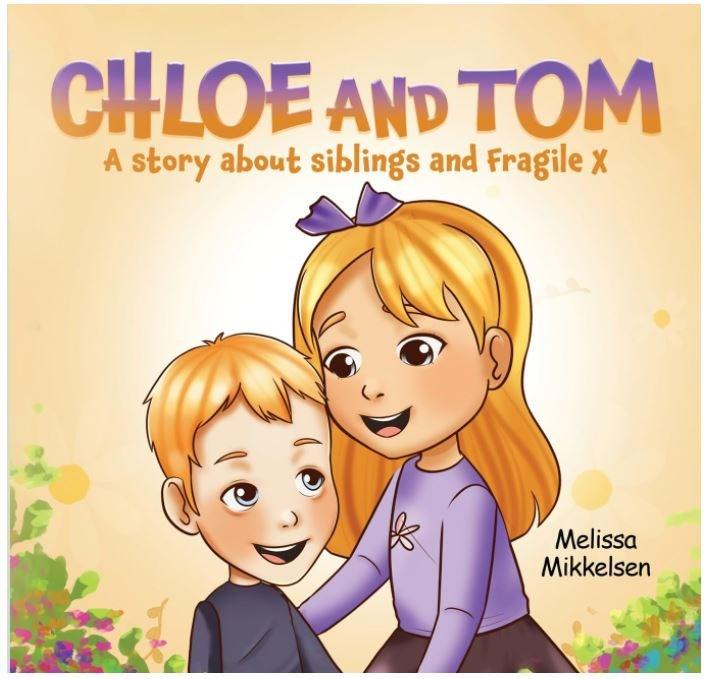
I hope that it can be a friend to families and professionals alike something that brings people together, sparks important conversations, and maybe even offers a bit of comfort and recognition to those on a similar journey.
Here's to all the incredible families and professionals in the Fragile X community. Your strength, love, and dedication inspire us every day.
All the very best,
Mel Mikkelsen
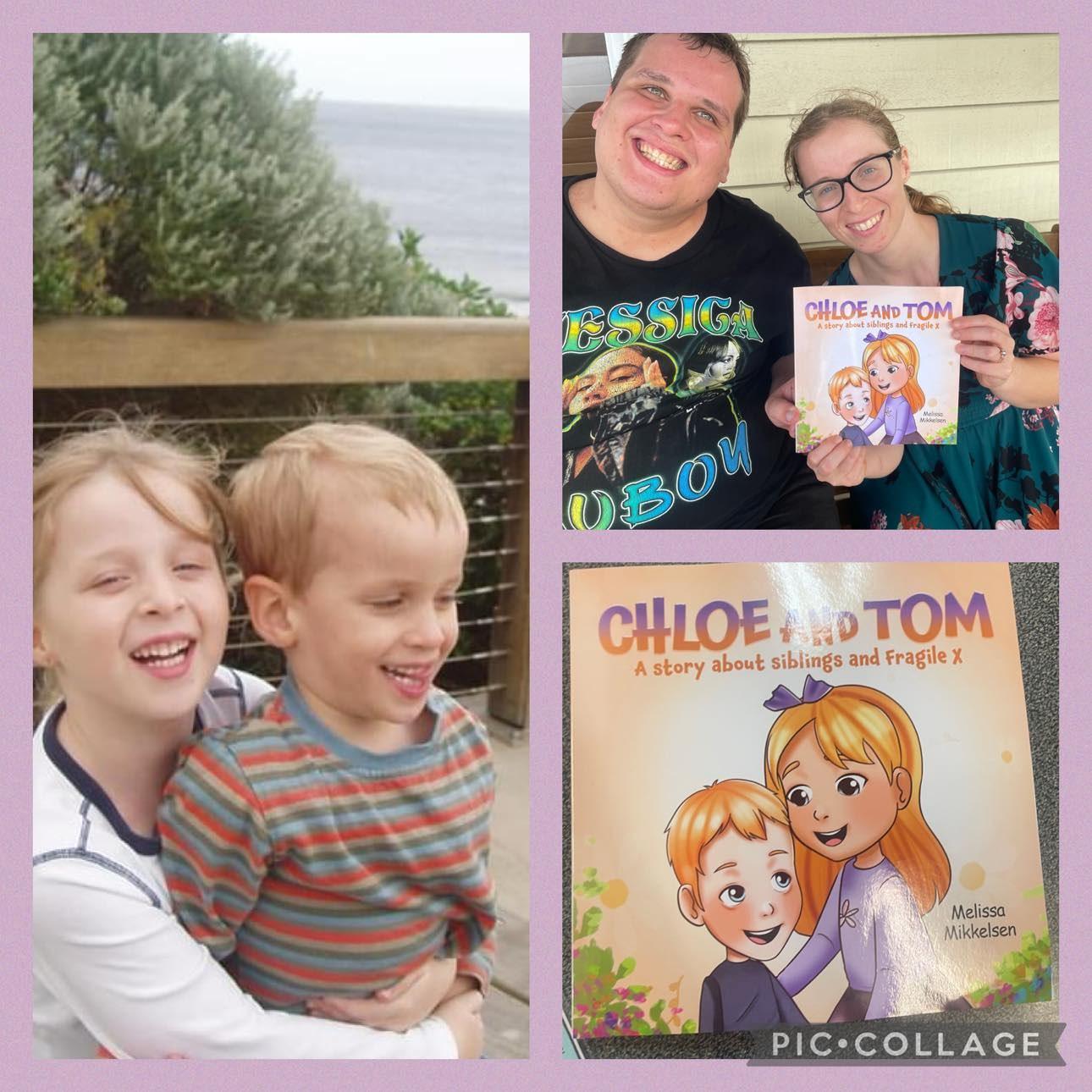
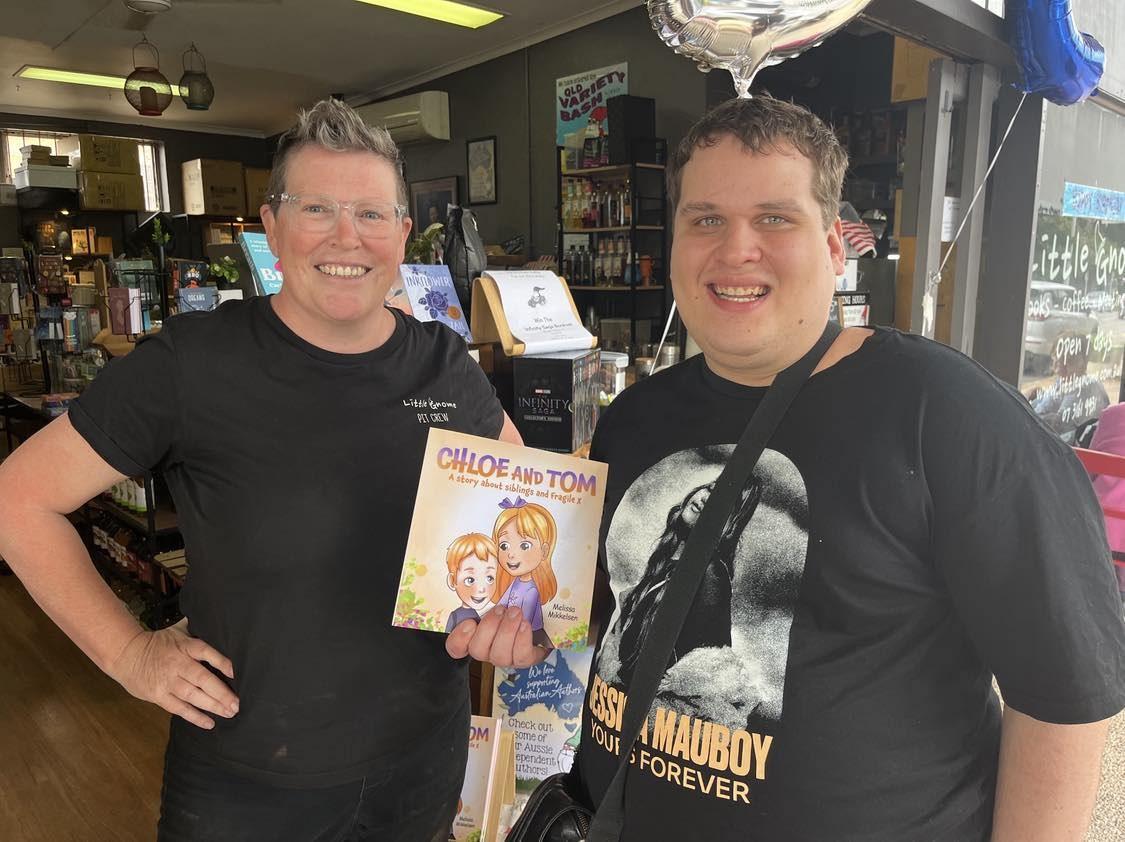
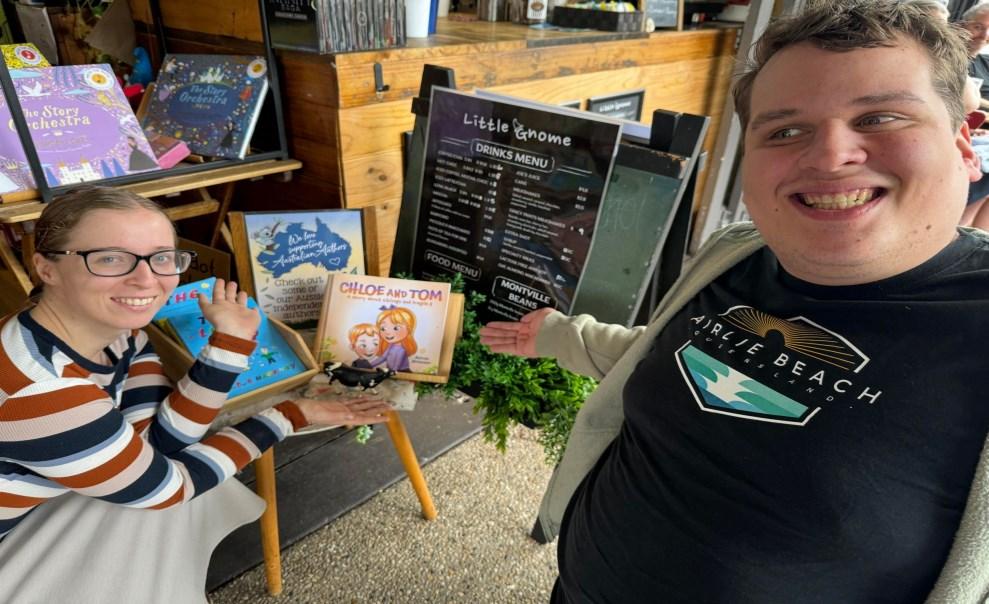
7
Pictured above the real-life Chloe and Tom when they were much younger, and just recently finding their book at the Little Gnome bookshop in Wynnum, Brisbane! Tom is looking forward to attending book signings in Brisbane bookshops in June. For each book sold at book signings in Brisbane, a donation will be made to Fragile X Association of Australia many thanks to author / mum Mel Mikkelsen. Find Chloe and Tom in print and as e-book (kindle) at online bookstores or selected bookshops.
FUNDRAISING
A look back at fundraising events

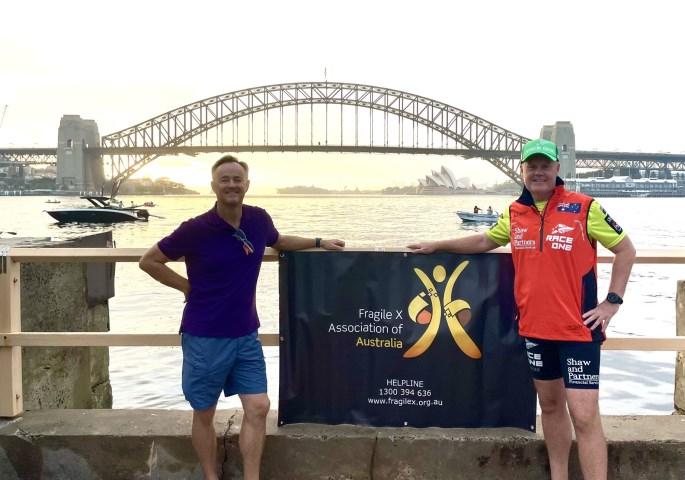
The annual Manly Wharf Bridge to Beach race across Sydney Harbour is a spectacular and very competitive paddle race from the Harbour Bridge across to Manly Cove. The event, organized by Oceanpaddler, and sponsored by Shaw and Partners Financial Services, is an important fundraiser for the Fragile X Family Support Counselling service. Fragile X Association of Australia is delighted to be charity partner for the race, since 2014. This year the combined fundraising efforts of the paddlers and the FXAA community, generously matched by raised a record-breaking $29,000! FXAA’s Liz Jewell was thrilled to accept the presented by Dean Gardiner, founder of Oceanpaddler.



The FX Raffle last December was great fun, with 1st & 2nd prizes being wooden play equipment handcrafted by FXAA member Ricky Crowe. The Harley Davidson has found a wonderful home with Jacob, who just loves his bike!

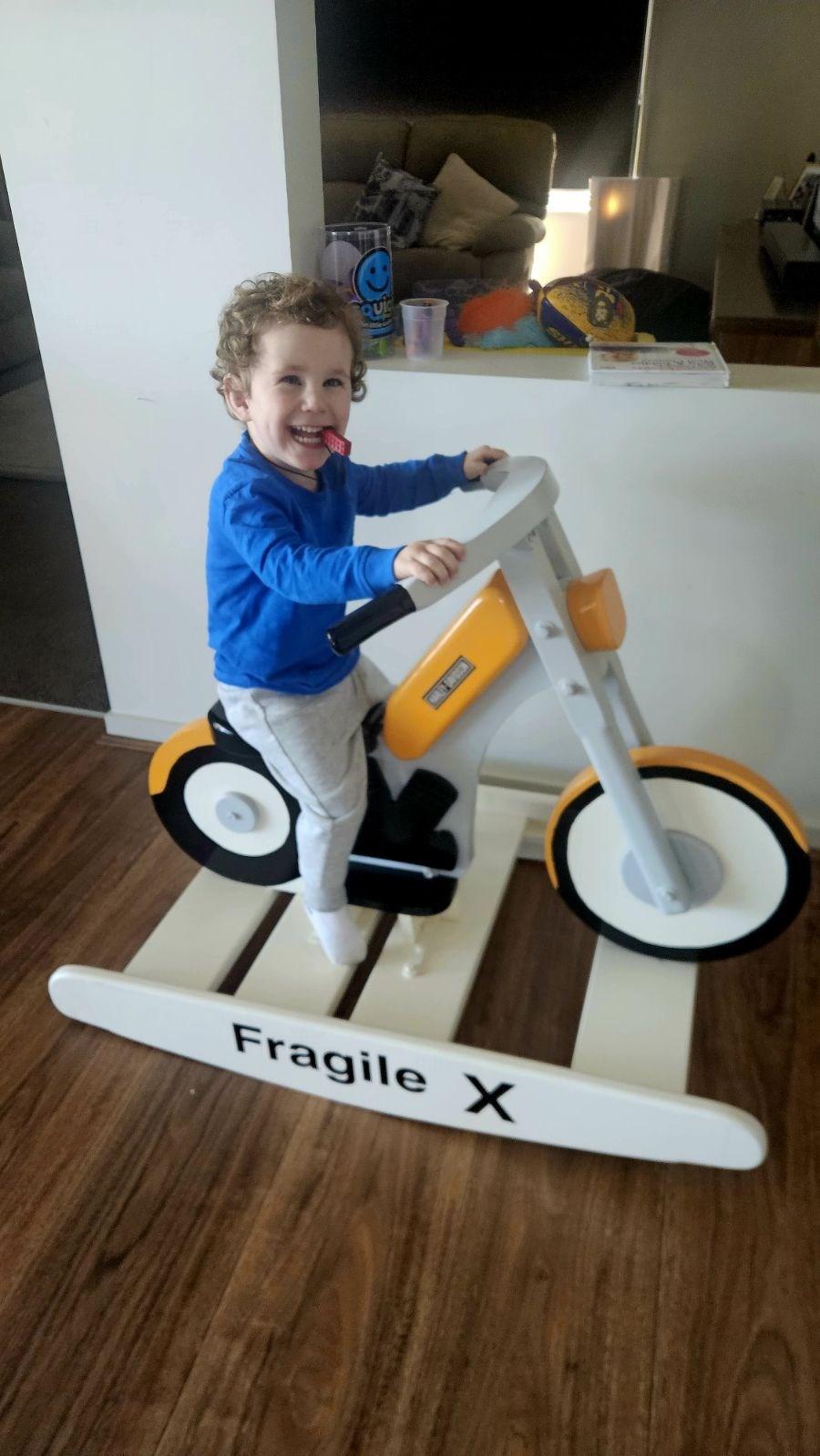
Six years ago the Ballarat Dance Awards were established to give young dance students in and around Ballarat the opportunity to be involved in performances, masterclasses and scholarships. In January each year the Awards raise awareness of Fragile X, in honour of Jimmy Jones, and raise funds to help us support the FX community. Many thanks to the team at Versatility Dance College
Next up! FX teams will take on the Sydney City2Surf on Sunday 11 August. This is an amazing fun run / walk, 14km from Sydney CBD to Bondi! Get in touch with Liz if you’d like to join a team. liz@fragilex.org.au



8
FX WEBINAR SERIES | WHAT’S COMING UP
We’re looking forward to a new style of webinar with our regular presenters Dr Marcia Braden and Dr Jonathan Cohen co-presenting an “Open Mic” forum for the first time a chance to ask questions around Fragile X syndrome or the Fragile X premutation. Q&A themes will be set in advance of their webinar, which will be held Sunday 8 September.
We’re delighted to bring to the program a series of sessions focusing onplanning for the future for family members living with Fragile X syndrome. Margaret Duncan, Principal Lawyer from Duncan Legal, and a representative from Microboards Australia, will present. These webinars will be “live only” so we hope many of you can join us live on Zoom. Also new to our program we do anticipate running webinars about Managing FXTAS and about Fragile X Premutation Associated Conditions later in the year.
DISABILITY ESTATE PLANNING (Live only)
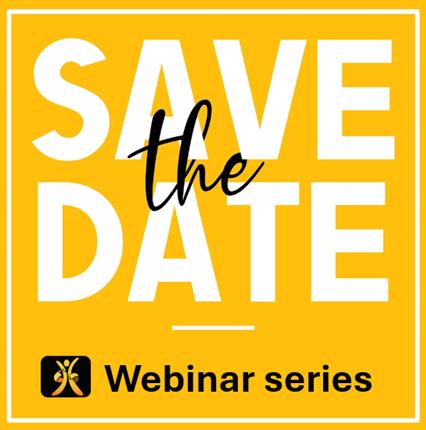
Thursday 13 June, 7pm AEST
60-minute presentation by Margaret Duncan, Principal Laywer,Duncan Legal. Followed by Q&A. Margaret will examine 10 disability specific issues to consider when formulating Wills and Powers of Attorney that are to provide for a person with a disability. This presentation will provide information re: types of protective trusts, who to appint as trustees, asset protection strategies, preservation of pensions/government benefits, superannuation & life insurance beneficiary nominations, and some accommodation options for a family member with a disability.
Register to attend at bit.ly/DisabilityEstatePlanning or see www.fragilex.org.au
SPECIAL DISABILITY TRUSTS (Live only)
Thursday 27 June, 7pm AEST
45-minute presentation by Margaret Duncan, Principal Lawyer,Duncan Legal. Followed by Q&A.
Margaret will explain Special Disability Trusts (SDT) as an option for persons with a more complex disability. This webinar will provide information as to: how to determine whether a SDT is appropriate; assessing eligibility; advantages & limitations; fund limits; the impact of asset and income testing; how to set up, operate and end a SDT; and some wider estate planning considerations.
Register to attend at: bit.ly/SpecialDisabilityTrusts or see www.fragilex.org.au
MICROBOARDS (Live only)
Tuesday 6 August, 8pm AEST
Presented by a representative from Microboards Australia,followed by Q&A. A microboard is a formalized, small group of family/friends who work alongside a person with disability to plan for and create a good life for that person. More detail about the webinar available soon at www.fragilex.org.au
RESEARCH ROUNDUP
Thursday 11 July, 8pm AEST
Hosted by Dr Claudine Kraan PhD, Vice-Chair of the FXAA Scientific, Clinical & Research Committee. Presentation topics and speakers to be announced. To register to attend, go to: bit.ly/ResearchRoundup2024 or see www.fragilex.org.au
OPEN MIC — ASK US ANYTHING ABOUT FRAGILE X
Sunday 8 Sept, 10am AEST
With Dr Marcia Braden PhD and Dr Jonathan Cohen MD. Short presentation, followed by 60 minutes of Q&A. Themes for the webinar, and a link to register available soon at www.fragilex.org.au

Many thanks to Zynerba Pharmaceuticals and the Qantas SideBySide Program for conferring grants which support the production of many of our webinars and the recordings for our youtube/podcast sites.

Catchup on past webinars



AVAILABLE ONLINE SOON
Females and Fragile X syndrome | Understanding and supports Dr Marcia Braden PhD, April 2024
Fragile X syndrome and Autism Spectrum Disorder | Differentiated Diagnoses
Dr Marcia Braden PhD, May 2024
9
BUILDING KNOWLEDGE ABOUTTHE FRAGILE X PREMUTATION
The Carriers: What the Fragile X Gene Reveals About Family, Heredity,
and Scientific Discovery.
By Anne Skomorowsky, with a foreword by Randi J Hagerman
“This book was published in 2022, but is well worth profiling currently.
I’d recommend this book to anyone who wants to know more about the inheritance of Fragile X and the associated conditions that are found in carriers.
The author is a psychiatrist but her writing in this book is story-like. It does not get bogged down in clinical scenarios. Rather, she integrates personal accounts from carriers as well as researchers, with history and medical evidence.
It’s definitely not a textbook! She combined biomedical information, psychiatry, genetics and history into a readable format. Most of all I loved the way that she wove the story of chats with Prof Randi Hagerman and counsellor Louise Gane, along with mothers of Fragile X syndrome children and their family histories. You felt like you were sitting around a kitchen table having a chat.
I think you could read this book several times and get something new out of it every time, pulling out something that is relevant to your current situation.
Here are some new things that I learned:
“Midrange repeats in the 60-100 range have consistently shown to be associated with mood and anxiety disorders One study measured salivary cortisol levels in mothers exposed to stressful life events but women in this study
ABOUT THE AUTHOR
who had midrange repeats made less cortisol when confronted with new stressors compared with lower or higher repeats.
This suggests that their chronic stress level interfered with their ability to cope with new stressors. In other words, women with 60-100 CGG repeats may already be stressed to the max. That could increase their vulnerability to psychiatric disorders.” And
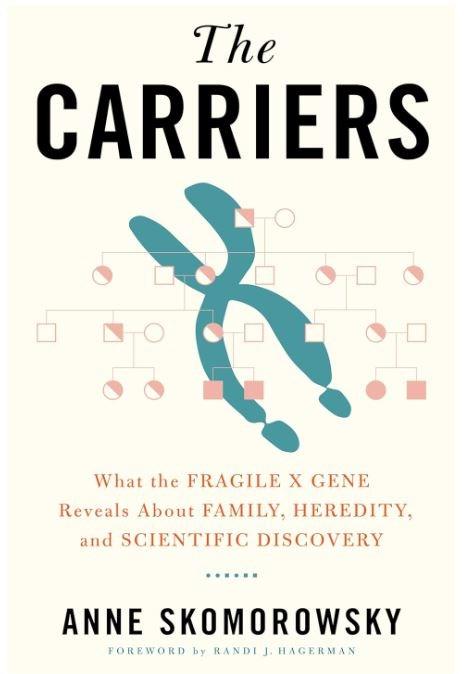
“…associations between low CGG repeat numbers and having more problems with memory and daily living in older adults, and a higher likelihood of having a child with mental illness or intellectual disability. Oddly, older women with low repeat numbers were six times as likely to need more drinks to get as tipsy as they had in their youth.”
While those of us who like a tipple might think that this is finally an advantage of being a carrier, it does, of course, run the risk of over imbibing because an effect is not felt. Self-medication via alcohol could lead to over/binge drinking and its associated health risks.”
Written by Cynthia Roberts.
Anne Skomorowsky is a clinical instructor in psychiatry at the NYU Grossman School of Medicine and attending psychiatrist at NYU Langone Hospital. Her writing has appeared in the New York Times, the Washington Post, the Wall Street Journal, Scientific American, and Slate
Interview with the author on youtube The Avid Reader series. 45-minutes. https://www.youtube.com/watch?v=a7YyCH5qoz0
Extract from the book foreword:
“I love this book because it is the first in the lay literature to put together the multigenerational impact that we see from fragile x mutations, particularly the premutations. As one mother said to me. “I can’t believe that just a small expansion of CGG repeats can cause so many problems.” Well, I believe it, because I have seen these problems so very many times in the carriers that I have evaluated over many years. Some carriers do fine and have no problems, but many others suffer significantly from the toxic effects of too much mRNA and this expanded CGG repeat number.
This book is needed because too many doctors and other healthcare providers do not realize the problems associated with the premutation, and they often have it mixed up with the full mutation. The premutation is common in the general population: 1 in 150 women and 1 in 250 to 400 men have it, so doctors in all fields of medicine will see these patients, and if they do not test for it they will not know that the premutation may be
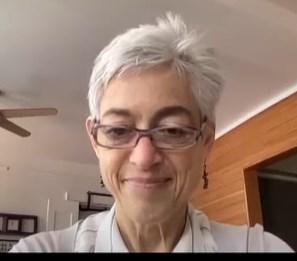
causing the problems that the patient is experiencing.
Confusion [in diagnosis of Fragile X syndrome vs premutation] persists, and more literature, including lay publications is needed.
This book fits that need. More important, it is written by an intuitive psychiatrist who is very knowledgeable about emotional and personality issues related to the premutation, as it affects her own family. […]
The story of the premutation is amazing. It weaves together hard science and molecular mechanisms with medical, neurological, and behavioral entities that clinicians in the past thought were completely separated. The premutation represents a broad group of disorders that unify medicine and psychiatry and challenge clinicians to think of new avenues of treatment…”
Randi J Hagerman
10
BUILDING KNOWLEDGE ABOUTTHE FRAGILE X PREMUTATION
NEW STUDY | Australian females with experience of Fragile X-associated Primary Ovarian
My name is Larissa Olshaski, and I am in my second year of the Master of Genetic Counselling program at the University of Melbourne. I’m from Canada and moved to Melbourne in early 2023 to start my master’s degree. I am doing my research project through the Genomics in Society Group at Murdoch Children’s Research Institute.
I am working with Dr Marta Ochoa, A/Prof Alison Archibald, A/Prof Belinda McClaren and Dr Claudine Kraan.
Our study is about understanding the experiences of Australian women with Fragile X-associated Primary Ovarian Insufficiency (FXPOI).
Why is this study important:
Little is known about the experiences of women with FXPOI. We are hoping to learn more about this area so we can help to raise awareness of FXPOI and improve the experiences and healthcare of people with FXPOI.
“I think this research is so important because it will work towards raising awareness of not just the existence of FXPOI but also how important it is for doctors, whether it be GPs or fertility specialists, to routinely test for FX in anyone with the desire to start a family or presenting with premature ovarian insufficiency. Earlier testing and awareness will contribute to better outcomes both medically and emotionally for those found to be affected.”Karen Lipworth, FXAA Board Member.
What is involved in participation?
Participants will be interviewed over the phone for about 30 minutes.
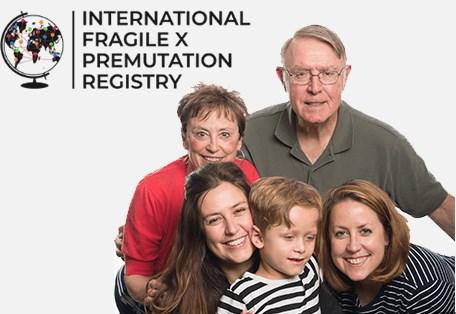
The purpose of the International Fragile X Premutation Registry is to build a large, diverse group of Fragile X carriers and their family members worldwide, who are interested in contributing to future research and to build community and resources for families affected by the premutation.
It is important for researchers to have participants who are premutation carriers only and who also have a premutation disorder, such as FXTAS. If you or a loved one are currently living with FXTAS or other Fragile X premutation condition you can help by enrolling in the Premutation Registry.
The goal is to enrol as many qualified people as possible to help inform future research on FXTAS and the premutation in general, ultimately leading to better care
The conversation will be focused on experiences with symptoms of FXPOI and the process of diagnosis.
The study will be open from May to mid-August. If you are interested in participating, or want additional information, please complete the expression of interest form through the QR code. The form is used to check eligibility and gather additional information for the study.

Eligibility: Participants must have a Fragile X premutation and FXPOI, be between 18-50 years old, and live in Australia. Participants will need to be available for a 30-minute phone interview with Larissa.
What happens to your data? Data from the interviews will be anonymised and stored securely. We plan to use the information we gather through these interviews to write a journal article, which can then be shared with participants who are interested in seeing the study results.
This study is being conducted through the Genomics in Society Group at Murdoch Children’s Research Institute. To express interest in being involved scan the QR code:

and possible treatments. This doesn’t commit you to participating in any specific research.
Invitation to join the Registry People who are female or male Fragile X premutation carriers, and who are 18 years or over, are invited to join the Registry by enrolling online.
What’s involved? People who join the Registry complete a survey to provide their contact, demographic, and basic medical details related to the Fragile X premutation. The data is stored in a secure online database.
As a participant, you ’ll receive annual updates about research developments in this field, and you may also be contacted by the IFXPM Registry team about research studies you may be eligible to participate in, including future treatment studies. Researchers from all around the world, including Australia, will have the opportunity to submit details of their Fragile X premutation study to the IFXPR Advisory Committee for review. Where a study is approved for distribution, the IFXPR team will email a recruitment flyer to eligible participants.
LEARN MORE ABOUT THE REGISTRY: https://fragilex.org/our-research/premutation-registry/ JOIN THE REGISTRY: https://redcap.ucdmc.ucdavis.edu/redcap/surveys/? s=X4RDLY79PADMLCRK
11
Insufficiency
BUILDING KNOWLEDGE ABOUTTHE FRAGILE X PREMUTATION
Fragile X premutation - a study of specific clinical & metabolic profiles or men and women
Dr Danuta Loesch and her team in Melbourne are continuing a study which aims to better understand why some women carrying the FX premutation may have certain general health problems, or develop some movement malfunctions such as tremors, and some others are symptom-free. The team is also interested in how the risk and progression of these problems differ between female and male premutation carriers. It is hoped that data from large enough group of participants will help to identify treatment and/or prevention targets in the future.
Participation Women and men who are FX premutation carriers over the age of 50 are invited to contact the team about participation. Dr Loesch says “Participation involves a 2.5 hour in-person appointment. We will have a chat, assess your movement and various aspects of your thinking and memory, and will ask you to complete two questionnaires. A blood sample collection is optional.“ For people in Victoria, the testing can be conducted at La Trobe University, Bundoora, or in their own home if preferred.
GENETIC TEST RESULTS
For people in other states, the testing can be organised in one of your local facilities.
The team hopes to have the opportunity for a followup appointment in 2-3 years.
The study, funded by the (US) National Institute of Health for a further 5 years, is in collaboration with Prof Randi Hagerman (MIND Institute, UCDavis) and her team. The study has received Human Research Ethics Committee approval from La Trobe University.
CONTACTS:
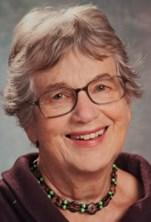
Chief Study Investigator (pictured) Dr Danuta Loesch d.loesch@latrobe.edu.au 0407 687 145
Research Assistant: Anna Atkinson 0404 058 818
Parents’ preferences for receiving prognostic genetic test results
Recently published paper: At present, most genetic tests are diagnostic which means they only able to indicate if an individual has a specific condition or not.
New genetic tests that provide prognostic information (i.e., predictions on how an individual may be impacted in the future) are now being developed for several neurodevelopmental conditions.
A new research study, led by Dr Erin Turbitt (pictured) at the University of Technology Sydney, that explored parents’ preferences for receiving and discussing prognostic genetic test results about their child has been published. Thirty-two Australian parents who have a child with a genetic neurodevelopmental condition, such as Fragile X syndrome, participated in an interview about their experiences receiving genetic testing and preferences regarding prognostic information.
Overall, parents had varied views about receiving prognostic information about their child. Parents who could readily describe the positive aspects of their child's condition, or who had a child who was more mildly impacted, appeared to be less enthusiastic about receiving precise prognostic information than their counterparts.
Parents wanting more precise prognostic information perceived that, while there may be potential inaccuracies about prognoses, this information would help with their practical and emotional coping. However, they recognised that prognostic information may be difficult to hear and accompanied by negative emotions.
Parents also commented on their fear that more precise prognostic information may have potential societal-level harms.
Recommendations from parents
• From the interviews, several recommendations were provided by parents regarding how best to provide prognostic information about their child.
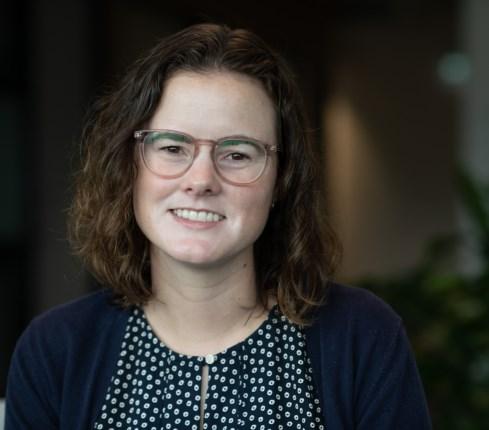
• Where possible, prognostic information should positively framed, discussing both the child’s strengths while being realistic about their future.
• Parents may require time to adjust to their child's diagnosis before considering receiving more precise prognostic information.
• Parents (and the child if developmentally appropriate) should be given the opportunity to discuss the decision for further testing.
• Adequate counselling and education about possible outcomes before testing and during the decision for further testing is essential.
• Psychological support should be available for parents and the child (if appropriate), particularly for those receiving less favourable prognostic information.
Dr Erin Turbitt PhD
Erin expresses sincere thanks to the parents who participated in this work and provided their valuable insights. Erin is a member of the FXAA Scientific, Clinical & Research Committee.
The full research paper is available online: https://onlinelibrary.wiley.com/doi/full/10.1111/dmcn.15830
12
TALKING FRAGILE X AT DISABILITY EXPOS
We’re looking forward to being present at theseDisability Expos coming up soon! Expos always provide a terrific opportunity to learn about services and supports, to meet up with our members. If you get to one of these Expos, drop by our table and say Hi to Liz, our FX Family Support Counsellor.
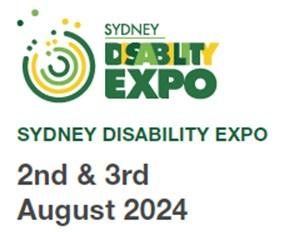

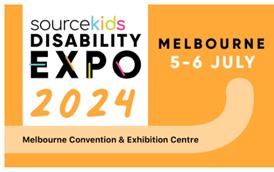
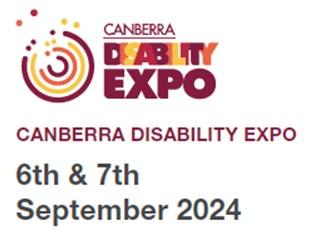
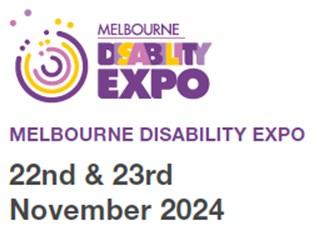
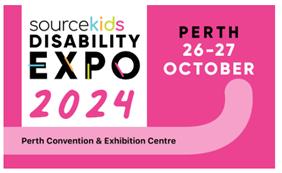
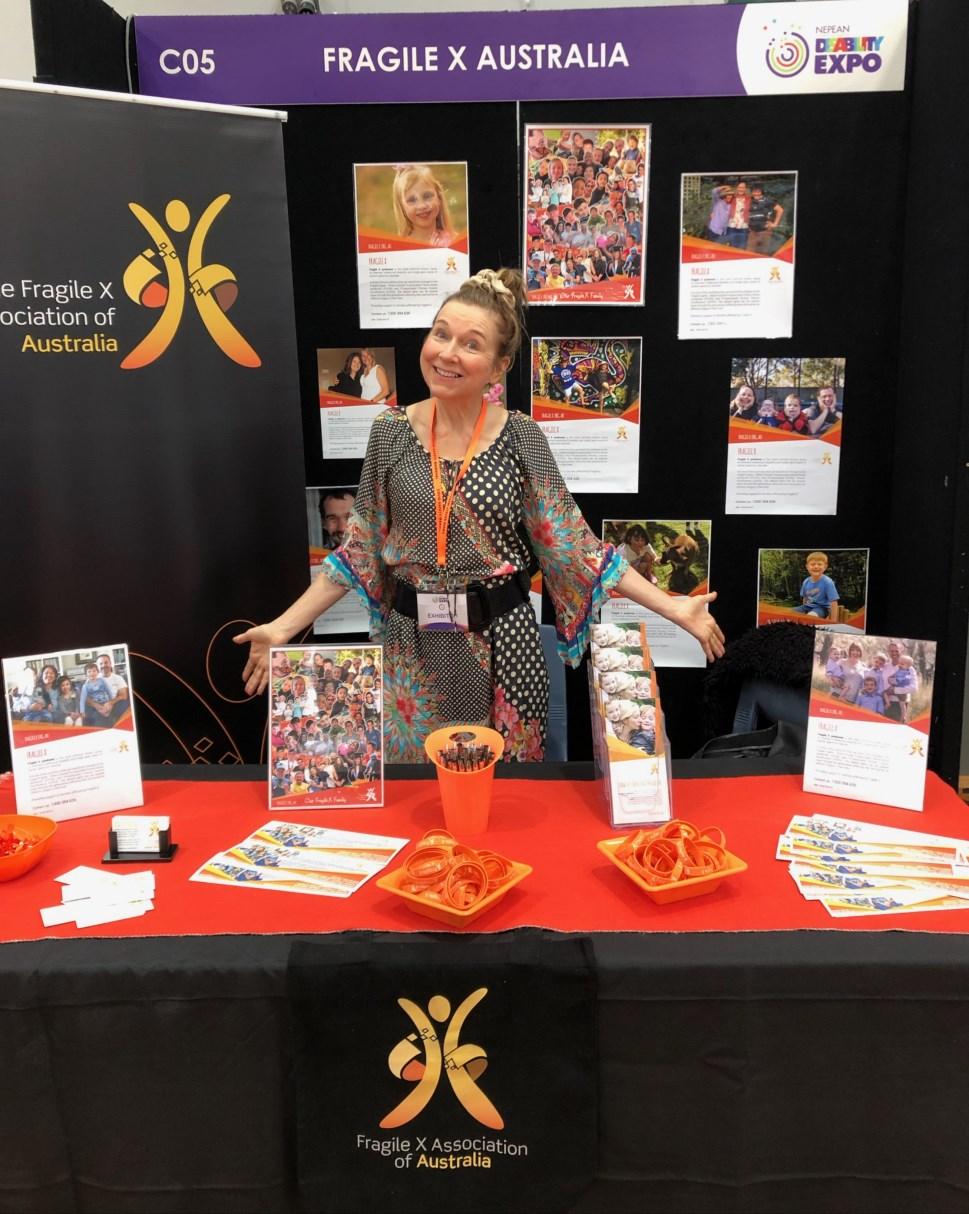
TALKING FRAGILE X AT EDUCATIONAL EVENTS FOR HEALTH PROFESSIONALS
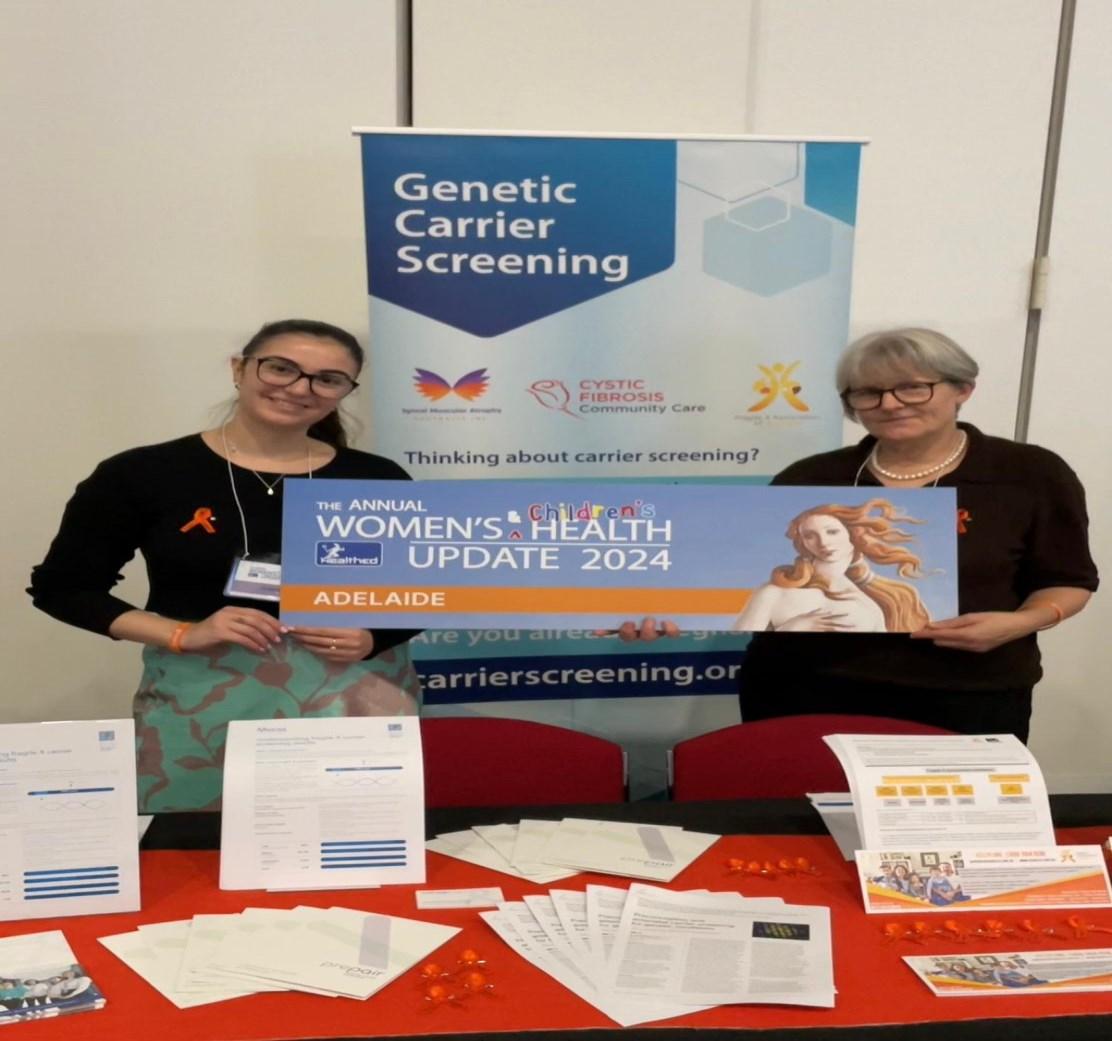
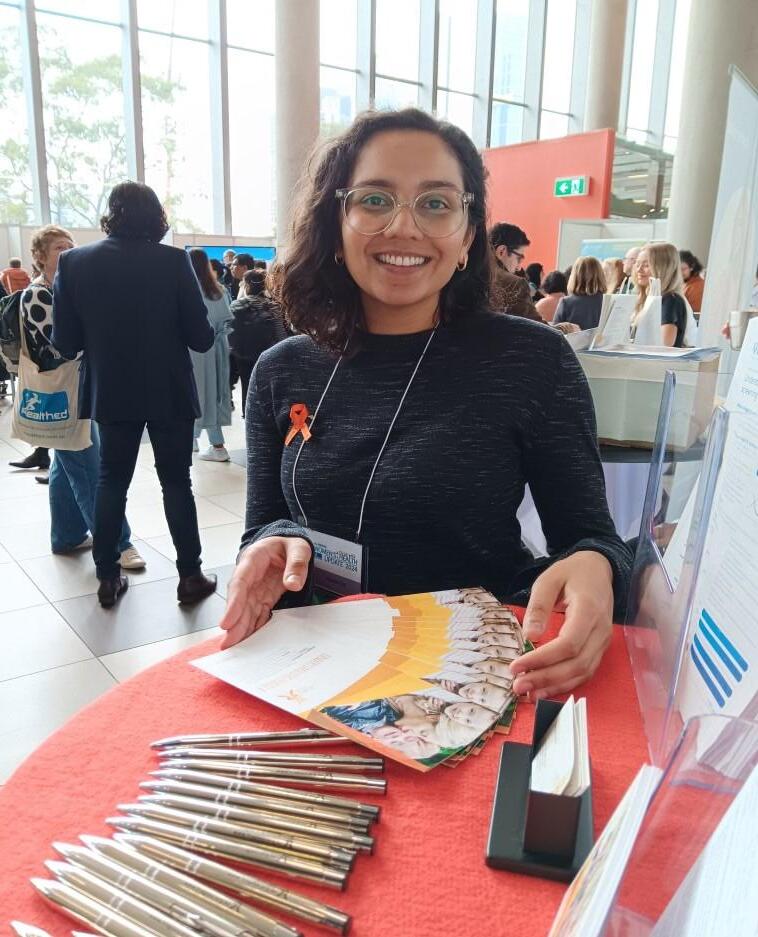
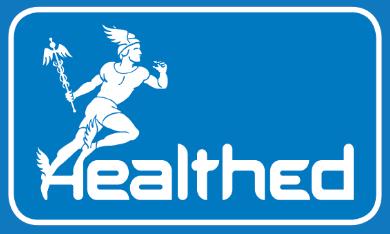
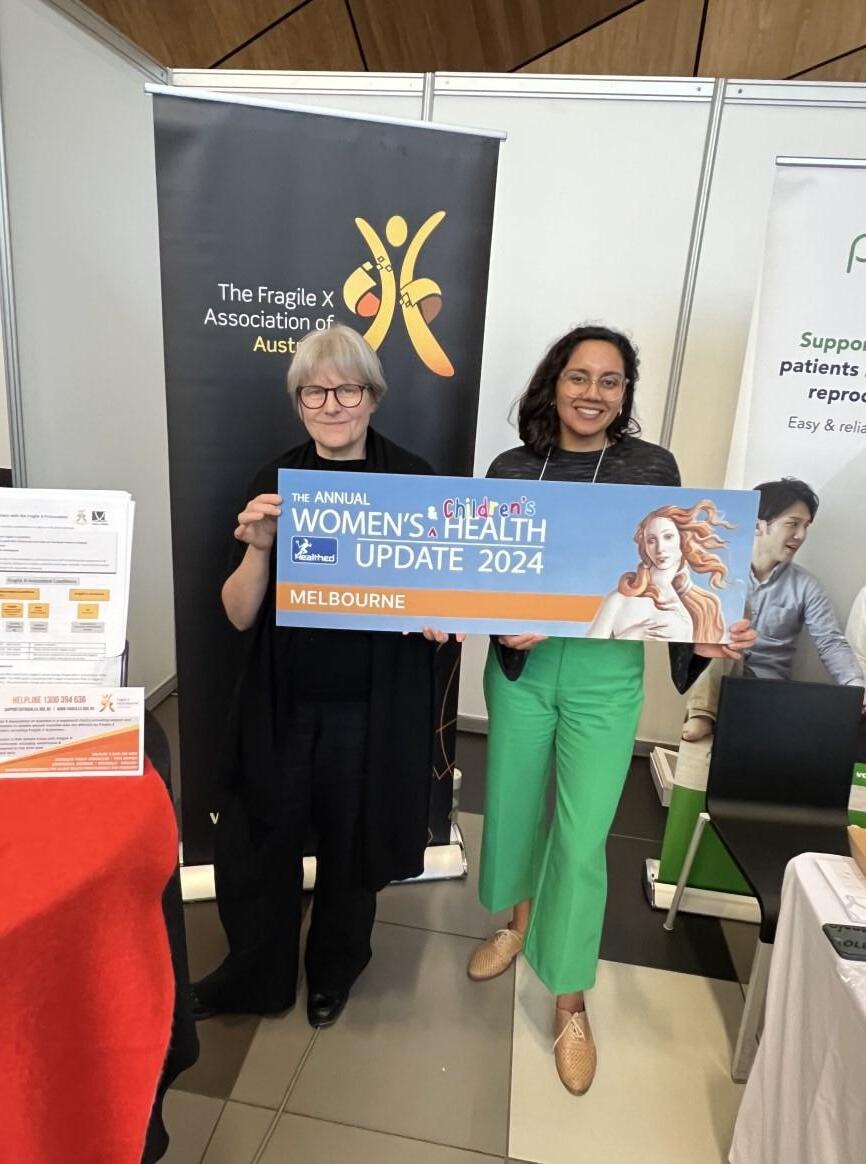
The reproductive genetic carrier screening test for Fragile X, Cystic Fibrosis (CF) and Spinal Muscular Atrophy (SMA) was added to the Medicare Benefits Schedule on 1 November 2023. The test is available to patients who are planning pregnancy or who are in the early stages of pregnancy, for the purposes of determining the risk of having a child with FX, CF or SMA. From November 2023 to April 2024 around 40,000 individuals have been tested. There is certainly ongoing interest from GPs in better understanding the screening and the supports their patients may require in interpreting test results. Many thanks to Dr Ramesh Manocha, the founder of Healthed, for the opportunity for FXAA to be present on a complimentary basis at these professional development forums for GPs. Thanks to Victorian Clinical Genetics Services (VCGS) for providing a genetic counsellor from their team to support us at each event and answer specific questions the doctors may have about the screening. In 2024 FXAA has been present at Healthed forums in Adelaide (March) and Melbourne (June) with Perth, Sydney and Brisbane events coming up later in the year.
Pictured, FXAA’s Wendy Bruce with genetic counsellors from VCGS Lana in Adelaide, and Lauren in Melbourne.
13

The Zynerba RECONNECT study is underway in Australia, the US and other sites international until the end of 2024.
The study is to evaluate the efficacy of Zygel TM in children, adolescents and young adults (to age 22) who have a diagnosis of Fragile X syndrome. The trial is currently enrolling participants at four sites in Australia: clinics in Adelaide, Brisbane, Melbourne, and Sydney.
Eligible participants are people who are aged 3 to 22 with a genetic diagnosis of Fragile X syndrome; experiencing behavioural symptoms; and are in generally good health.
Zygel TM is a transdermal gel. It is a pharmaceutically produced cannabidiol, a non-euphoric cannabinoid, which is a major component of marijuana. This is a follow-up study to Zynerba’s previously completed CONNECT-FX study, a randomized, double-blind, placebo-controlled Phase 3 trial. That trial demonstrated significant improvements in both Social Avoidance and Irritability tests in subjects with complete methylation of their FMR1 gene.
Because the observed areas of improvement found only in fully methylated subjects were not the primary outcome of that trial, the US Federal Drug Administration (FDA) requested this follow-up trial before granting approval for marketing.
Zygel is a unique permeation-enhanced cannabidiol transdermal gel. Transdermal therapeutics are applied locally and absorbed through the skin directly into the systemic

circulation, resulting in a lower incidence of gastrointestinal side effects, and avoidance of first-pass liver metabolism, which potentially enables lower dosage levels of active pharmaceutical ingredients and rapid, reliable absorption with increased bioavailability. Other potential benefits of transdermal delivery compared with oral administration may include fewer drug-drug interactions.
Participation in the study: After an initial screening visit to confirm eligibility, participation involves 4 virtual visits and 3 in-person appointments over 18 weeks.
SITES:
Flinders University, Health Data and Clinical Trials
Flinders Medical Centre Bedford Park SA 5042 | Phone 0468 566 663
Queensland Children’s Hospital 62 Graham St South Brisbane QLD 4101 | Phone 07 3069 7532
Genetic Clinics Australia 263 Glen Eira Rd
Caulfield North VIC 3161 | Phone 03 9528 1910
The Children’s Hospital at Westmead Cnr Hawkesbury Rd & Hainsworth St Westmead NSW 2145 | Phone 0429 218 938
MORE INFORMATION => https://fragilexhelp.com.au/
FX VIDEOS AND PODCASTS - RESOURCES FOR FAMILIES & SUPPORT PROVIDERS
Checkout the FXAA youtube and podcast channels for a wealth of information about Fragile X.
These resources are ideal for parents, family members, educators, health professionals, disability support and aged care team members.to get up-to-speed or as a refresher.
You’ll find recordings from Fragile X workshops and webinars, as well as videos made for FXAA.
Fragile X syndrome: The videos cover a wide range of topics related to the syndrome. Such as: testing & screening for Fragile X; an explainer about Fragile X syndrome; supporting the learning style associated with Fragile X syndrome; understanding anxiety and behaviours; building independent living skills for adult males with Fragile X syndrome; supporting the challenges some females with Fragile X syndrome face in daily living;

sensory processing disorders associated with Fragile X; supporting communication skills; medications; adult health issues.
Fragile X premutation: Recordings include an overview of health issues associated with the Fragile X premutation; a webinar recording on Pre-Implantation Genetic Diagnosis for FX premutation carriers, presented by an IVF specialist; and a webinar on “FXPOI what do I need to know.”
Presenters in the video/audio recordings include Dr Marcia Braden, Dr Jonathan Cohen, Bev Sher, Bev Kadish, Dr Jennifer Epstein, Dr Randi Hagerman and other health professionals with expertise in Fragile X-associated areas.


Many thanks to Zynerba Pharmaceuticals and the Qantas SideBySide Program for educational grants which support the production of many of our webinars.


14 FRAGILE X SYNDROME CLINICAL TRIAL ENROLLING IN AUSTRALIA
GeneEQUAL project
GeneEQUAL is an inclusive research team, including coresearchers with lived experience of intellectual disability.
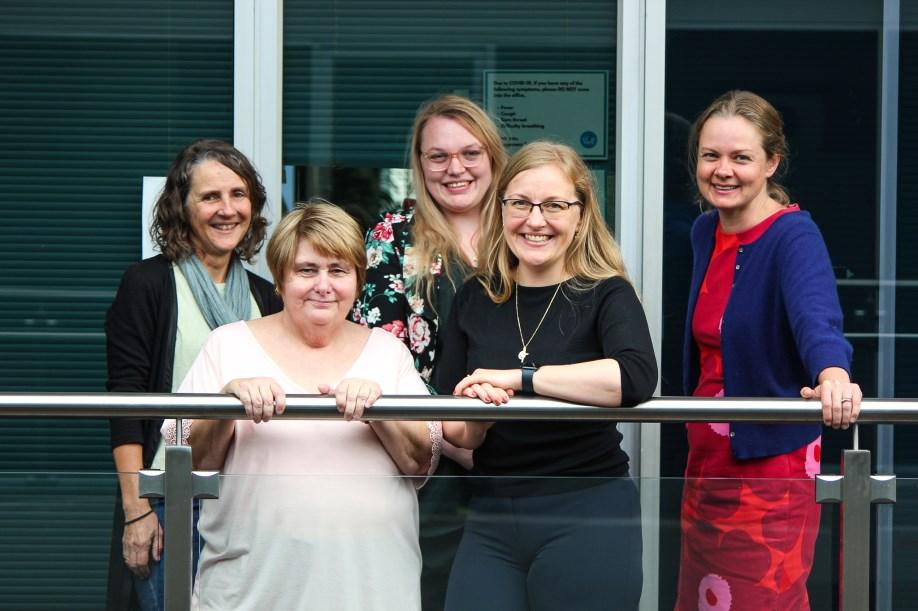
Our national 5-year project funded by the National Health and Medical Research Council aims to ensure genetic health care is
• inclusive
• person-centred and
• respectful for people with intellectual disabilities.
Project aims
We are interested in understanding the barriers and enablers of good genetic health care from the perspective of
• people with intellectual disability
• their families and support people
• their health care professionals.
We are also interested in understanding people with intellectual disability preferences for how
• genetic health information should be presented
• they want to be supported to make their own health care decisions.
If you are able to provide support, your generosity will help FXAA ensure people living with Fragile X are connected, included, understood and empowered.
Your donation (no matter how big or small) will help us maintain and deliver our:
• Counselling support service
• FXAA Helpline
• Educational webinar program
• Advocacy work
• Peer connection and referrals

wwww.fragilex.org.au
Who can be involved
We would love to hear the experiences of:
• people with intellectual disability aged 12 and above
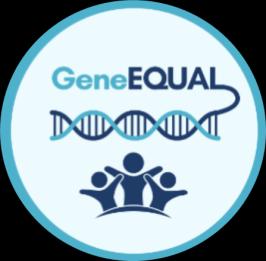
• family members and support people aged 18 and above of people with an intellectual disability
• health professionals working with people with an intellectual disability.
What is involved
You can be involved through
• an interview (face to face, online, or on the phone) or
• focus group (face to face or online)
Participating will take around 30 minutes to 1 hour.
If you would like you can bring a person you trust with you to the interview or focus group.
Who to contact
If you are interested or have any questions, you can contact Emma Palmer elizabeth.palmer@unsw.edu.au 02 9382 5583 Iva Strnadová i.strnadova@unsw.edu.au 0426 959 172
You can check out our previous resources
In the past we have been funded by NSW to co-produce an online Educational Toolkit. This toolkit helps support accessible discussions about genetics with people with intellectual disability, including 1. key principles (for example how to make reasonable adjustments in line with state-based health policy), 2. videos modelling current and best practice and 3. printable Easy Read booklets on genetics, genetic services, and genetic health care.
GeneEqual website: https://geneequal.com/
HOW TO DONATE
Donations can be made by
* website https://www.fragilex.org.au
* direct deposit (contact support@fragilex.org.au)
* scanning the QR code
Donations of $2.00 and over are tax-deductible.
All support makes a difference.
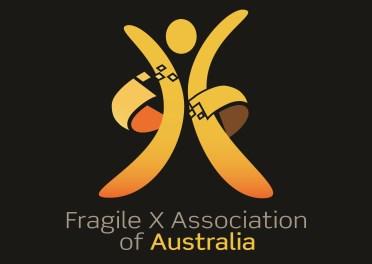
Donate to FXAA

15
TO CONSIDER DONATING IN SUPPORT OF FRAGILE X ASSOCIATION OF AUSTRALIA
INVITATION
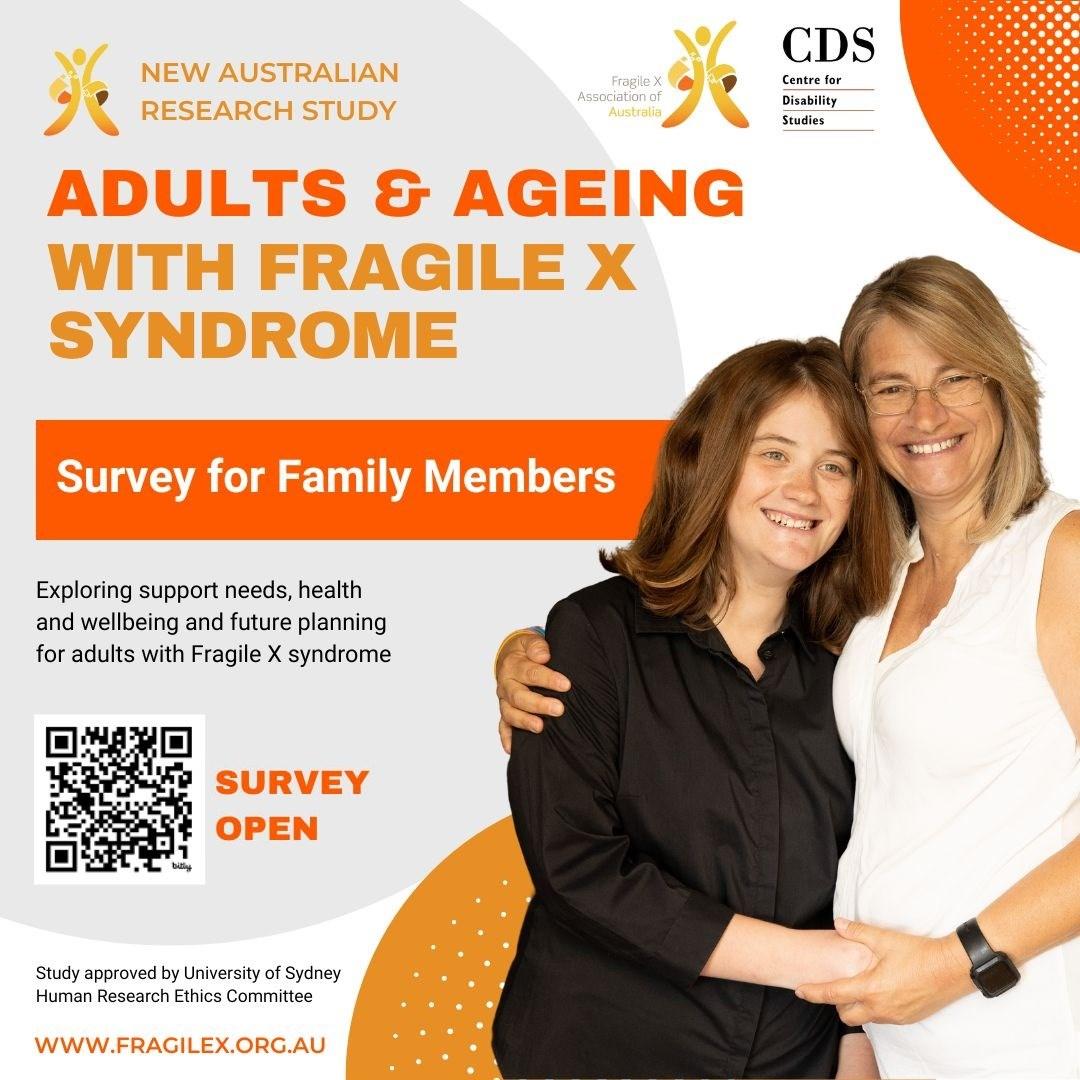
Invitation to Participate in a new Australian Research Study
Parents or other members of a family of an adult (aged 18 or over) who has Fragile X syndrome are invited to participate in the first Australian study on the support needs, health & wellbeing of adults with Fragile X syndrome as they age.
This Survey will help the Fragile X Association of Australia / Centre for Disability Studies research team:
1. Build a picture of current and future needs
2. Understand any gaps in supports or services
3. Create free online learning resources for disability, aged care & health teams about Fragile X syndrome
4. Advocate for policy and practice developments across support and care settings
Several options for completing the Survey:
* ONLINE https://www.fragilex.org.au/survey-for-families-of-adults-with-fragile-x-syndrome/
* PAPER FORMAT contact us to request a printed copy
* BY PHONE CALL with the FX Family Counsellor or a member of the research team
Contact Us for more information by EMAIL to support@fragilex.org.au or PHONE 1300 394 636.
16






































































